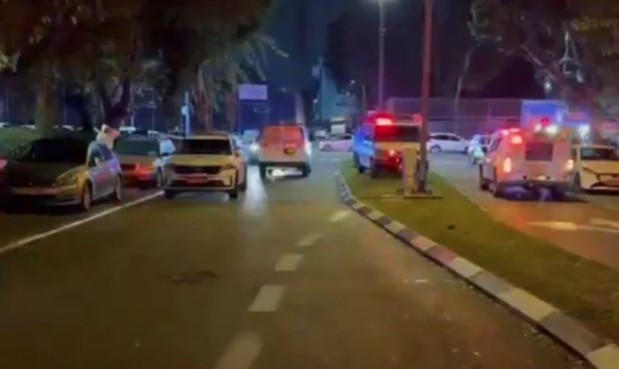Houthi Missile Explosion in Tel Aviv Public Park
In a shocking incident overnight, a missile launched by Yemen’s Houthi group exploded in a public park in south Tel Aviv, leaving chaos and damage in its wake. The attack occurred at 3:44 a.m., setting off air raid sirens throughout central Israel and forcing millions to rush to shelters. This was the second missile attack in just two days targeting the area.
The missile evaded interception attempts, detonated in the park, and created a large crater upon impact. Medics reported that shattered glass injured 16 individuals, including a three-year-old child, while the frantic rush to safety bruised another 14 people. Dramatic footage captured at the site showed the extent of the damage and the crater left behind.
The Israeli military confirmed the missile originated from Yemen, with social media videos capturing the failed interception attempts and the devastating moment of impact. The incident follows an escalating pattern of attacks by the Houthi group, which has increasingly targeted Israeli territories in recent months.
Recent Wave of Escalation
This latest missile strike comes on the heels of another attack just two days prior, where a Houthi missile struck an empty school building in Ramat Gan. Although no injuries were reported, the missile caused severe structural damage. In response to this escalation, the Israeli military carried out a significant airstrike operation against Houthi targets in Yemen on Thursday morning.
The operation, which had been in the planning stages for weeks, involved 14 fighter jets, refueling aircraft, and reconnaissance planes flying over 2,000 kilometers to Yemen. The Israeli Air Force targeted critical Houthi-controlled infrastructure along Yemen’s western coastline and in Sana’a, the group’s stronghold. Over 60 munitions were dropped during the strikes, which aimed to cripple key operational hubs for the Houthis.
Key targets included fuel and oil depots, power stations, and tugboats vital for the operation of Houthi-controlled ports. By targeting tugboats and port cranes, the Israeli strikes have reportedly halted all activity at these ports, dealing a major blow to the group’s supply chain and operational capacity. Military footage released during the operation showcased the precision of the strikes and the aerial refueling techniques used.
A Pattern of Attacks by Houthi
The Iran-backed Houthi group has actively targeted Israel with drones and missiles over the past year. Israeli defenses have intercepted most of these attacks, while others have failed to reach their intended targets. However, some have caused significant damage and casualties. The Houthis have launched almost 200 missiles and 170 drones at Israel over this period, according to the Israeli military.
The attacks escalated following a major attack on Israel in October, with the Houthis joining other Iran-aligned groups to apply further pressure. In addition to targeting Israeli cities, the Houthis have repeatedly disrupted maritime activities in the Red Sea, attacking around 100 merchant vessels in recent months. These actions have significantly impacted global shipping, forcing many vessels to avoid the region’s crucial waterways.
Israel’s recent airstrikes on Houthi positions in Yemen represent the third counterstrike against the group’s bases. Previous operations focused on disrupting their military capabilities, particularly at Hodeida Port, a critical hub for their logistics. The Houthis remain a persistent threat in the region, with their missile and drone attacks creating widespread disruption and fear among civilians.
This incident underscores the increasing volatility in the region and the far-reaching impact of the Houthi attacks on both civilian lives and global commerce. The situation highlights the devastating consequences of the escalating conflict and the immense challenges in ensuring the safety of millions.

